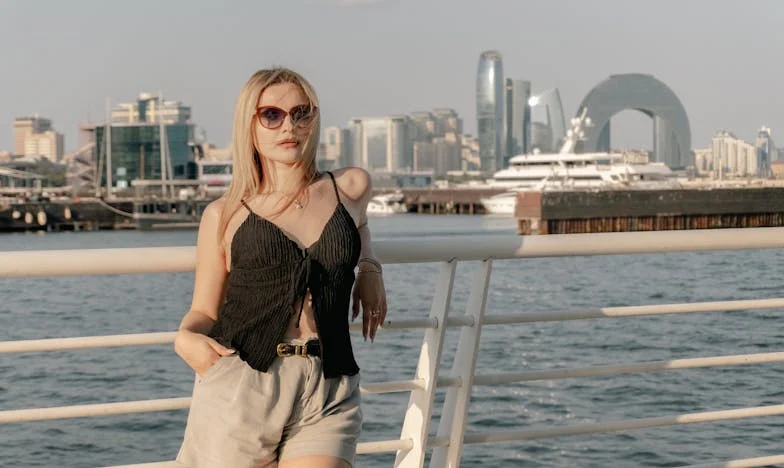Fatherless in Suburbia: My Mother’s Biggest Secret
“Are you ever going to tell him?”
The voice crackled through the thin apartment wall. At first, I thought it was the TV, but then I heard my mother’s voice, low and trembling, “He doesn’t need to know, Lisa. Please, just… don’t bring it up again.”
I froze in the hallway, ten years old and clutching my battered copy of Harry Potter. My mom, always so strong and sure, sounded scared. I pressed closer, heart thumping. Lisa, her best friend since high school, was visiting for coffee — they did this every Sunday after church, but today was different. “He’s going to find out someday, Vi. Kids aren’t stupid.”
I wasn’t stupid. I knew most of my friends had dads. I’d never really wondered why I didn’t, not until that moment. My mom always said it was just the two of us against the world. I believed her. But now, listening to her voice — the crack in it — something shifted inside me.
That night, as she tucked me in, I asked, “Mom, where’s my dad?”
Her face went pale. For a second, she looked like she might cry, but then she smoothed my hair and forced a smile. “He’s not part of our life, honey. It’s just you and me.”
“Did he die?” I whispered.
She shook her head. “No. He just… didn’t want to be here.”
I nodded, but questions burned. If he didn’t want to be here, did that mean he didn’t want me?
The next morning, life went on as usual. I went to school. I rode my bike with my friends in the cul-de-sac. But something had changed. I noticed all the dads at Little League practice, their shouts echoing across the field. I saw them at the PTA meetings, grilling hot dogs at the school fair. I never said it out loud, but I started to wonder if I was missing something essential.
Years blurred together. My mom worked two jobs — mornings at the diner, evenings at the grocery store. She was always tired but never complained. Every Christmas, she’d scrape together enough for a tree and a few presents. She’d smile and say, “We’re making memories, Jake. That’s what matters.”
But as I got older, the questions grew. At fourteen, on a chilly November night, I searched her room while she was out. My hands shook as I dug through drawers, finally finding a locked box at the back of her closet. I picked the lock with a bobby pin. Inside were faded photos: a young man with my eyes and crooked grin, letters addressed to my mom, and a crumpled court document.
The words jumped out at me: “Restraining Order.”
The front door slammed. I barely had time to shove everything back before she came in. She saw the open closet, my guilty face. Her shoulders sagged. “You found it.”
We sat at the kitchen table. She told me the truth, voice trembling. My father had been charming, funny — until he wasn’t. He drank too much, yelled, and one night, he hit her. She left, taking me with her, when I was only a baby. She thought hiding the truth would protect me from the pain, but now, as tears streamed down her face, I saw the toll it had taken on her.
“I wanted to believe he’d change,” she whispered. “But he didn’t. I’m so sorry, Jake.”
I didn’t know what to say. Part of me hated my father for what he’d done, but another part ached with longing. Who was I, really? Was I destined to turn out like him?
The next year, I started acting out. I skipped class, got into fights. Mom tried to reach me, but I pushed her away. One night, after a bad argument, I stormed out, riding my bike for hours. I ended up at Lisa’s house. She listened as I raged and cried.
“Your mom loves you so much, Jake,” she said gently. “She did what she thought was best.”
“But she lied to me,” I shot back, wiping angry tears. “How am I supposed to trust her?”
Lisa squeezed my shoulder. “Nobody’s perfect. Parents make mistakes. What matters is if you forgive them — and yourself.”
Forgiveness. The word felt heavy. But as months passed, I saw my mom’s sacrifices with new eyes. She gave up everything — college, friends, her dreams — to keep me safe. Maybe she’d been wrong to hide the truth, but she’d done it out of love, not malice.
Senior year, I got a letter from my father. He was sober now, living in Dayton, wanted to meet. I stared at the envelope for days. My mom left the choice up to me.
When I finally called, his voice was rough, older than I expected. We met at a diner. He apologized, tears in his eyes. “I was a mess, kid. I hurt your mom. I missed out on everything.”
We talked for hours. I realized I didn’t have to forgive him, not right away. But I could move forward. I could define my own life, not let his mistakes shape me.
At graduation, my mom cheered the loudest. Afterward, I hugged her, holding on longer than usual.
“I love you, Mom,” I whispered. “Thank you for being both parents.”
Now, years later, I wonder: How many secrets sit in the dark, waiting to shatter or save us? Can we ever really know our parents — or ourselves? If you were in my place, would you want to know the truth, even if it hurt?
